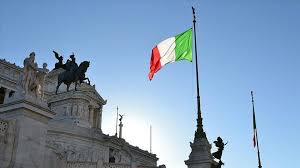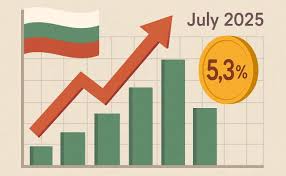Bulgaria’s president calls for referendum on joining the eurozone

Sofia: New members of the European Union are generally expected to adopt the euro once they meet specific economic criteria, and Bulgaria is expected to join the 20 states already using the currency in January 2026.
But during a national address on Friday, the country’s President Rumen Radev said he would ask parliament to agree to hold a referendum on the issue.
Radev said that putting the decision to a public vote was democratic necessity, arguing that public trust in institutions is too weak to allow such a major step to proceed without broader consensus.
“Every Bulgarian citizen has the right to speak out about their money, their well-being, and their future,” he said, describing the proposed vote as a way to unite the country and restore legitimacy to a divided political process.
The referendum proposal comes at a time of growing tension over Bulgaria’s readiness to join the eurozone. Although the new pro-European government, formed last month, has made euro adoption a top priority, critics argue that Bulgaria’s economy is not yet prepared.
In 2024, the European Central Bank said the country failed to meet the necessary inflation criteria, and some experts have argued that replacing the lev with the euro at this stage would increase public distrust in institutions and impact the country’s economic competitiveness.
Nationalist and pro-Russian groups have capitalized on these fears, staging protests in the capital Sofia earlier this year demanding that the government abandon the euro project.
The president’s referendum initiative has sparked a sharp backlash from Bulgaria’s mainstream pro-European parties. Members of the center-right GERB party accused Radev of siding with anti-European and pro-Russian forces. GERB MP Delyan Dobrev said the vote could derail Bulgaria’s path toward deeper European integration, while fellow lawmaker Desislava Taneva called it a “divisive and reckless” move.
The centrist WCC-DB alliance, which backs the current government, also condemned the initiative, with the group’s co-chair saying they would oppose the proposal in parliament.
Even within the president’s inner circle, the announcement caused a rupture. Krum Zarkov, Radev’s legal affairs adviser and former justice minister, resigned in protest, calling the referendum legally questionable.
However, nationalist parties welcomed the president’s move. The far-right “Revival” party, which has consistently opposed eurozone membership, praised Radev and hinted at escalating pressure if the proposal is blocked in parliament.
Bulgaria joined the European Union in 2007 and has long aimed to adopt the euro.But repeated delays, political instability, and rising public skepticism have slowed progress. The European Commission is expected to publish its next report on Bulgaria’s readiness within weeks.
EU members are broadly expected to join the eurozone once their economy satisfies the so-called “Maastricht criteria,” a range of stipulations which include stable inflation, sound public finances, and exchange rate stability. Denmark is the one country that currently has an opt-out from this rule.





